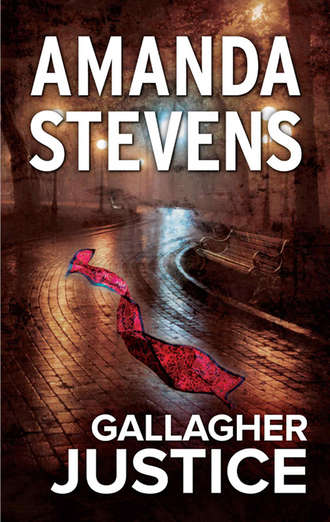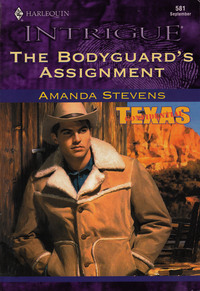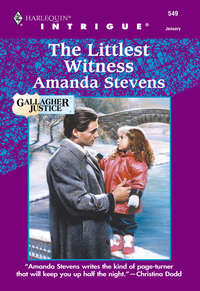
Полная версия
Gallagher Justice
Had Lexi sensed that Alicia was in trouble? Had she felt her sister’s terror?
Did she know the exact moment when the bullet had pierced her sister’s skull?
Or was Lexi...beyond knowing?
“Why did you call me, Alicia?” Fiona wondered aloud. “And why in God’s name didn’t I call you back?”
Don’t dwell on it. Nothing could be done about it now. Recriminations could come later, but for now, the only productive thing Fiona could do was concentrate on her work.
She glanced back down at her notes, tried to pull her thoughts together once again, but her mind kept rambling and the words on the page blurred. Her eyes suddenly burned with exhaustion, and Fiona thought that if she could just rest them for a moment, she’d be good to go.
But the moment she closed her eyes, she drifted off and the image of Alicia’s pale, still features materialized in her dream. Mist swirled around the body as Fiona stared down at her, and somewhere in the darkness behind her, a tape played over and over. “Fiona? This is Alicia Mercer. Please call me when you get this message. I really need to talk to you.”
And then suddenly the tape stopped. The fog faded, and Fiona was standing on a lonely road in the harsh glare of headlights as she stared down at David Mackenzie’s lifeless body. Someone said in horror, “He’s dead, Fiona. My God, you killed him.”
She came awake with a start, the ringing of the telephone as jarring in the early morning hours as a scream. Glancing around, Fiona tried to orient herself, and when the sound persisted, she finally got up to answer it. Finding herself not quite steady on her feet, she put a hand on the table for balance.
Carefully she walked across the room to the sofa where she’d tossed the cordless phone earlier. Halfway there, she realized it wasn’t the phone ringing, but the doorbell.
She adjusted course and moved very deliberately to the door to glance through the peephole. Detective Doggett stood on the other side. She undid the dead bolts and drew back the door to let him in.
He walked inside and glanced back at all the locks. “How many of those things you got on there?”
Not enough. Fiona pulled fingers through her messy hair as she closed the door, then turning, she caught her breath when she found him standing right behind her. His eyes...those laser blue eyes...were staring at her intently. And he was frowning. Fiona had the vague notion that he was scowling at her in disapproval.
Not a comfortable revelation for any woman.
“Sorry to drop by like this,” he said. “But I told you I’d be in touch as soon as I heard something.”
Fiona had made sure he had her home phone number before they left the crime scene, expecting that he would simply call when he had news. But here he was, alive and in person, and she realized that he must have looked up her address in the cross directory. She wondered if she should be annoyed at his presumption. Maybe when she was thinking a little more clearly she would be.
She felt dizzy, all of a sudden, and put a hand to her forehead.
“Hey, you okay?” Doggett asked her.
“I’m fine.” But her words sounded slurred even to her.
“Maybe we’d better sit down. You don’t look too steady on your feet.”
“No, I told you I’m fine—” But Fiona was horrified to feel herself sway. She put out a hand to stop the room from spinning, but there was nothing to grab hold of. “I think I’m going to—”
The next thing she knew, she was lying on the sofa, staring up at the ceiling. Doggett was standing over her. Still scowling. Still disapproving.
“I’m all right,” she muttered. “I just felt a little woozy.” So woozy, in fact, she couldn’t quite remember having gotten from the door to the sofa.
“You fainted,” Doggett said. “Or maybe I should say, you passed out.”
Disgust in his voice. Not a good sign. Fiona gritted her teeth and sat up. “I couldn’t have. I didn’t have that much to drink.”
“You had enough to knock you on your butt. Is that the norm for you? You come home from a crime scene at four o’clock in the morning and start drinking?” His expression was so grim that Fiona thought if he’d had a rolled up newspaper, he probably would have bopped her on the nose with it. She had the sudden urge to tuck her tail between her legs and slink off to the nearest corner.
“I didn’t get home until four-thirty,” she said coolly as if that made any kind of difference whatsoever. Humiliation always made her irreverent...irrelevant...shit. “And if I want to have a drink in the privacy of my own home, I don’t see how that’s your business.”
“I’ll tell you how it’s my business. You’re the prosecutor assigned to my case. I don’t want a bad guy slipping through the cracks because you weren’t up to the job.”
“You don’t have to worry about me,” Fiona assured him, wishing she didn’t feel as if she might throw up at any moment. Barfing on Doggett’s shoes would definitely undermine her credibility. “I know how to do my job. You just make sure the bad guy doesn’t slip through the cracks because you or some other detective in your division decides to ride roughshod over his rights.”
“So we’re back to that again, are we? Let’s get one thing straight. I’m not Frank Quinlan.”
Well, on that, they were in perfect agreement.
As Doggett turned on his heel and headed for the kitchen, Fiona leaned forward slightly, watching him exit the room. He had a nice butt, and the fact that she noticed told her that she must, indeed, be just a tiny bit hammered. After a moment, she heard him fiddle with the coffee-maker as he tried to figure out the controls.
“Make yourself at home,” she grumbled, wondering if she had enough strength to make it to the bathroom, wash her face, and then crawl back before Doggett ever missed her. She decided she didn’t, and let her head fall back against the sofa instead.
When Doggett returned, he set a steaming cup of coffee on the table in front of her. “Drink it. Let’s get you sobered up so we can talk.”
“I’m not drunk. And, for God’s sake, do you have to hover over me like that? You’re not my mother.”
His lips thinned in displeasure. “No. But you’re reminding me a little too much of mine just now.”
Oh, God, she really was going to be sick. “What’s that supposed to mean?”
He glared down at her, then shrugged. “Just drink the coffee.”
“When you stop hovering.”
He walked over and sank down in a chair opposite the sofa. “Better?”
She picked up the cup and sipped. The coffee was hot, bitter and strong. Just the way she liked it. The caffeine went straight to her head, and Fiona sat back against the sofa, cradling the cup between her hands.
After a moment, she glanced at Doggett. “Okay. Tell me why you’re here. Did you find Lexi?”
Something flickered in his eyes, a shadow that sent a shiver of dread up Fiona’s spine. “No, not yet.” He leaned forward, resting his forearms on his knees. “But I did manage to track down their roommate through a neighbor. Her name is Kelly Everhardt. She drove up to Wheeler on Sunday morning to visit her parents for a couple of days. She’s coming back sometime this morning.”
“Does she know where Lexi is?”
Doggett paused. “She hasn’t seen Lexi for nearly a week.”
A chill shot through Fiona’s heart. “Where’s she been?”
“No one seems to know. The roommate says she didn’t come home last Thursday night, and she hasn’t been seen since.”
“Has a missing person’s report been filed?”
He shook his head. “The roommate said Alicia didn’t want to get the police involved.”
“Why not?”
“Because she didn’t want their parents to find out. According to the roommate, Lexi has a habit of disappearing. Seems she got involved with a married man last semester, and the two of them used to sneak off for days at a time without telling anyone because he insisted they keep the affair a secret. The roommate says Lexi broke off the relationship before Christmas, but when she didn’t come home this time, Alicia was afraid she’d gone off with him again. The roommate said Alicia thought she could find her on her own, talk some sense into her, and the parents would never have to know.”
Fiona leaned forward and carefully placed the cup on the table. The sudden infusion of caffeine had given her a bad case of the shakes. “Did their roommate say who this married man was?”
“She didn’t know. She said Alicia didn’t know for sure, either, but she told the roommate she had her suspicions.”
“Do you think this guy could have had something to do with Alicia’s death? Maybe he was afraid she knew about him and Lexi.”
Doggett shrugged. “It’s possible. Right now it’s the only lead we’ve got. Hopefully we’ll know more after the autopsy.”
“Did you call Lori?” Fiona asked anxiously.
“I spoke with her a little while ago.”
“How did she take it? Is she...okay?” A stupid question. Lori Guest had just learned that one daughter had been murdered and the other one was missing. Of course, she wasn’t okay. She’d probably never be okay again.
Oh, God...
“She’s flying into O’Hare sometime later this morning,” Doggett said.
“Did you talk to her husband?”
“No, just Mrs. Guest.”
Fiona rubbed her forehead with her fingertips. “I’ve been asking myself over and over why Alicia called me last week, and now I think I know. She wanted me to help her find Lexi. When I didn’t call her back, she went searching for her sister on her own. And now she’s dead.”
“You’re not blaming yourself for that, are you?” Doggett’s blue eyes pierced through Fiona’s armor with hardly any resistance, and she found herself wondering, unaccountably and inappropriately, if there was a woman in his life.
“I know Alicia’s death wasn’t my fault,” she said with a frown. “But I’ll always wonder what might have happened if I had called her back. Maybe I could have helped her, and maybe she’d still be alive.”
“And maybe,” Doggett said in that deep, rumbling voice of his. “You’d be lying in the morgue with her right now.”
CHAPTER SIX
MEREDITH SWEENEY, the assistant ME, had Alicia Mercer’s X-rays waiting for Doggett a few hours later when he arrived at the Chicago Technical Park where the morgue was located.
He studied the skull X-rays. “Was I right about the bullet hole? A .45 caliber slug, right?”
Meredith shook her dark head. “No, but that’s what I thought, too, at first, so don’t feel bad. When I calibrated the hole, though, I found it somewhat smaller than .5 inches. The wound is more consistent with a .40 caliber or 10 mm bullet.”
Doggett glanced at her. “You sure about that?”
She shrugged. “You can measure it for yourself if you want.”
“I’ll take your word for it.” The information didn’t necessarily mean anything, but on the other hand, Doggett found it interesting. In recent years, .40 caliber weapons had come into wide use by law enforcement agencies all over the country, including the Chicago PD. Doggett’s own service weapon was a Glock 27, a piece favored by a lot of undercover cops.
“I wouldn’t get my hopes up for any kind of ballistics match,” Meredith told him. She pointed to the left side of the victim’s skull, in the area behind the eye socket where metallic density showed as white flecks on the X-ray.
“A lead snowstorm,” Doggett muttered.
“Exactly. You can actually see where the bullet disintegrated as it traveled through the body, which means it must have been partially jacketed.” She moved to another X-ray and indicated an anomalous object in the pelvis area. “I suspect this is where we’ll find the bullet, what’s left of it.”
Doggett nodded. “What about the bruises around her wrists?”
“Looks like he used a nylon cord, the kind you can buy in any hardware store.”
“And the mark on her shoulder?”
“We’ve sent a sample of the ink to the lab, but you can get stamp pads in any discount or office supply store, and those temporary tattoos are sold out of vending machines.”
“It’s the symbol that’s bugging me,” Doggett said. “Why a trident?”
“At least it’s not a swastika,” Meredith said dryly. “Or a pentagram. God knows we see our share of those.” She gave Doggett a moment longer to study the X-rays. “Are you staying for the autopsy?”
“Yeah.” It wasn’t just a matter of duty, but a matter of conscience. His way of paying respect to the victim. Doggett never walked out on an autopsy, no matter how gruesome.
Meredith nodded briskly. “Let’s get started then, shall we?”
Doggett followed her into the autopsy room where Alicia Mercer’s nude body waited for them on a cold, stainless-steel table.
* * *
THE AIR-CONDITIONING in the courtroom was operating in hyperdrive, and Fiona shivered as she glanced around the packed benches, picking out faces in the crowd that she recognized. She was seated at the prosecution table with Milo, who was busy going over his notes. Fiona knew that she should do the same, but her gaze kept straying back to the visitors’ block where a dozen or more cops from Area Three, both in uniforms and plainclothes, had turned out in a show of support for Vince DeMarco.
Fiona came from a long line of cops. The Gallaghers were almost legendary in the police department. Her grandfather, her father, her three brothers...all Chicago PD. So she knew cops. She knew how they walked, how they talked, how they thought. But the one thing she’d never been able to understand about them, no matter their rank, was the blind loyalty to the brotherhood.
Most of the police officers she knew were good, decent, hardworking guys who would never, in a million years, condone rape. They recognized the crime for what it was—an act of violence. In most cops’ estimation, a rapist ranked just slightly above a child molester, and yet here a dozen or so of Chicago’s finest—those good, decent, hardworking men—sat lending moral support to a creep like DeMarco. And all because he was a fellow police officer.
But that view was simplistic and more than a little unfair, Fiona knew. Most of the officers in the courtroom had undoubtedly managed to convince themselves, with Quinlan’s help, that DeMarco was the victim. He was a good cop being railroaded by a vindictive junkie and by an out-of-control prosecutor who had started to believe her own press. Fiona Gallagher, the Iron Maiden, was building herself quite the reputation by going after cops—first Quinlan and now DeMarco.
As for Fiona, she had no doubt whatsoever of DeMarco’s guilt. She didn’t care what his fellow cops thought. She didn’t care what Frank Quinlan had force-fed them into believing. All she had to do was look into DeMarco’s eyes, those cold, dark, soulless eyes, to know the truth.
“You raped that poor girl, didn’t you, Detective DeMarco? You saw her on the street that night, you accosted her, and you’re not the type to take no for an answer. When she wouldn’t go with you willingly, you forced her into that alley, tried to beat her into submission, and then, when that didn’t work, you put your gun to her head and threatened to blow her brains out if she screamed. Isn’t that what happened? Admit it, Detective. You raped that girl, didn’t you? Didn’t you?”
“No! I didn’t touch her! I swear! I wouldn’t do something like that. I’m a cop, for God’s sake. I took an oath to protect people like Kimbra Williams. I would never hurt anyone.”
So earnest, so sincere. The jury had hung on his every word.
But his eyes had told Fiona something very different. His eyes had taunted her, conveyed to her secretly that, yeah, he’d done it. He’d do it again, too, if the mood struck him, and there wasn’t a damn thing she could do about it.
Maybe you’d like to be next, Counselor.
He hadn’t said it aloud, but the message was so clear in his eyes that for a moment, Fiona was the one who had been rattled by the cross-examination. And it hadn’t helped her poise to know that Frank Quinlan was sitting on the front row, his beady eyes tracking her every move as she walked back to the prosecution table.
He was there again today. Fiona had seen him when she first entered the courtroom. He’d been sitting front and center, in full-dress uniform, brass stars shimmering in the fluorescent lighting as he’d clapped a supportive hand on DeMarco’s shoulder.
Milo muttered something under his breath, then leaned toward Fiona. “Did you see all the brass from police headquarters walk in? What the hell are they doing here?”
“Are you kidding? Didn’t you see the TV cameras out front?” Fiona glanced over her shoulder, her gaze once again sweeping the crowded courtroom. Milo was right. The big guns were out in full force, including Deputy Chief of Detectives Clare Fox. She wore her dress uniform, too, and her stars seemed to shine just a little more brilliantly than Quinlan’s.
Milo tugged at his tie. “Hell, with all this attention, you’d think we had O.J. in here.”
“A cop accused of rape is pretty good copy,” Fiona said. “Especially a hero like DeMarco. But at least the reporting so far has been fair.”
“Fair?” Milo grinned. “Ever since you cooperated with that IAD investigation, you own the guy at the Trib.”
“Which I’m sure endears me even more to Frank Quinlan,” she said dryly.
Milo’s grin disappeared. “Quinlan’s got some heavy-duty connections, Fiona. Don’t underestimate him.”
She turned in surprise. “Gee, if I didn’t know better, I’d swear you were starting to get paranoid on me, Milo. What’s with all these warnings? First Guy and now Quinlan?”
He frowned. “Those two have more in common than you might think.”
She lifted a brow. “Such as?”
Milo turned away, but not before she’d seen something dark flicker in his eyes. That secret again. “They can both be major-league assholes,” he muttered, but Fiona didn’t think that was what he’d meant to say at all.
More and more, she was starting to think that there was something on Milo’s mind, something he wanted to confide in her, but for some reason, felt he couldn’t. The vague warnings were starting to make her uneasy around him.
But at least his appearance was somewhat reassuring. He was dressed today like the Milo she was accustomed to—gray suit, neatly combed hair, dark-rimmed glasses that made him look boyish and earnest. A persona that might or might not be an asset if the jurors compared it to the dark, smoldering sex appeal of Vince DeMarco.
“Only one person missing from this circus,” he said, turning to scan the courtroom. “Where in the hell is Kimbra? Have you heard from her this morning?”
“I haven’t talked to her since court yesterday, but she promised me she’d be here.”
Milo’s lips thinned. “And if she doesn’t show?”
“Then we could be in some deep you-know-what here. But she still has a few more minutes. I’m not giving up on her just yet.”
But it wouldn’t be that much of a surprise if Kimbra didn’t show, even though Fiona had stressed over and over how important it was for the jury to see her in the courtroom today. But that was Kimbra’s MO. When the going got tough, she ran.
Not that Fiona could blame her. It couldn’t be easy sitting in court day in and day out with her attacker only a few feet away, his smoldering gaze mocking her at every turn. The jury saw only one side of Vincent DeMarco, the good-looking, sexy cop who wouldn’t need to resort to rape when he could have any woman he wanted, even one as young and exotically attractive as Kimbra.
But rape wasn’t about sex. It was about power. It was about domination and humiliation.
And humiliation was something Fiona could relate to.
You didn’t fall in love with a man who’d killed three women and not want to curl up and die at your own gullibility—at your own blind stupidity for not having seen through such evil, for not having been able to stop it.
Which was why Fiona had to stop it now.
Almost against her will, she glanced at the table across the aisle. Vincent DeMarco met her gaze and smiled, as if he knew exactly what she was thinking.
Then a commotion at the back of the courtroom drew his attention, and Fiona saw anger flash across his face. He turned and said something to Quinlan, and the older cop nodded in grim agreement.
Fiona shifted her gaze to see what had caused their agitation, and relief swept through her. Kimbra and Rachel Torres, the woman who ran the runaway shelter where Kimbra sometimes stayed, had just come into the courtroom. They paused at the back, and then Kimbra started forward with a little stumble, as if Rachel had had to nudge her to get her to move. The girl’s expression was frozen. She glanced neither to the right nor to the left as she stepped up to the prosecution table and took her seat.
Fiona turned and put her hand over Kimbra’s. “Thanks for coming.”
Kimbra shrugged. “I said I would, didn’t I?”
Fiona squeezed her fingers. “I know this isn’t easy for you, but you’ve done great so far. Just hang in there a little longer, okay? It’ll all be over soon.”
“Then he’s goin’ to prison, right?” Kimbra turned eyes that looked as old as time on Fiona. “Cuz if he don’t do no time for this, I’m a dead woman.”
A shiver crawled up Fiona’s spine at the certainty in the girl’s voice. “If he threatens you in any way—”
“What y’all gonna do ’bout it, Miss Lawyer? Huh? That man’s Five-O. They do what they want,” she said bitterly. “Who’s gonna stop ’em?”
“I’ll stop him. If he comes near you, we’ll get a restraining order—”
Kimbra all but laughed in her face. “You still don’t get it, do you? If he wants me dead, I’ll just disappear one day. Won’t nobody ever know what happened to me. That’s how he’ll do it.”
She paused for a moment, her gaze sliding past Fiona as a look of pure terror crept into her eyes. Then she blinked it away and the defiant mask slipped back into place. “Y’all keep messin’ with the wrong people, Miss Lawyer, they might just disappear you, too.”
* * *
FIONA WALKED OVER TO THE jury box and planted her hands on the railing. Milo had done a fantastic job sum-marizing the evidence and recounting witness testimony in his closing remarks, but the defense attorney, Dylan O’Roarke, had been masterful.
He’d wasted no time in getting to the heart of the case. “In spite of the prosecution’s attempts to muddy the waters at every turn, the case is a simple one, ladies and gentlemen. It boils down to one single question. Who do you believe? A troubled runaway with a long history of drug abuse and a willful disobedience of the law? One who openly bragged about her hatred of the police? One who, as you heard more than one witness testify, swore to get her revenge on Detective DeMarco for an old arrest?
“Or do you believe Vincent DeMarco, a decorated police officer, an ex-Army Ranger who distinguished himself on a desert battlefield as well as on the mean streets of Chicago?”
Dylan had gone on and on, hammering home the same point until Fiona had seen at least one juror nod very slightly in agreement.
And now it was her turn to offer a rebuttal. She surveyed the twelve members of the panel, noting their expressions as they stared up at her expectantly, and then she said, very quietly, “One out of every three women in this country will be sexually assaulted in her lifetime. One out of every three.”
She emphasized the last five words as her gaze slid to a well-dressed, middle-aged woman in the second row who had sat rigidly throughout the whole trial. Her expression rarely showed anything more than an intense concentration, as if she were determined to perform her civic duty to the best of her ability, but beyond that the trial couldn’t touch her. Rape couldn’t touch her.
Fiona stared at her for a long moment until the woman was forced to meet her gaze. “It could happen to any woman in this courtroom. It could happen to me. It could happen to you.”
Something flashed briefly in the woman’s eyes. Denial, Fiona thought. She often found the toughest jurors to sway in a rape case were upper-middle-class white women who had a hard time identifying with a victim like Kimbra.









